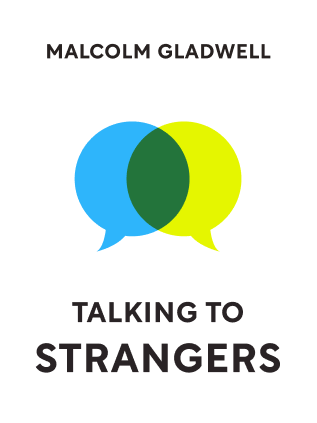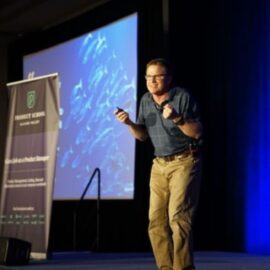

This article is an excerpt from the Shortform book guide to "Talking to Strangers" by Malcolm Gladwell. Shortform has the world's best summaries and analyses of books you should be reading.
Like this article? Sign up for a free trial here .
The primary reason that most people can’t immediately detect a lie is that human beings default to assuming truth in others. Is it possible to learn how to detect a lie?
We’ll cover the reasons it’s difficult to know how to detect a lie, and we’ll look at why you’ve evolved to assume the best in people.
It’s Hard to Learn How to Detect a Lie
To understand how people detect lies, and perhaps learn how to detect a lie, psychologist Tim Levine used hundreds of versions of the same basic experiment (referred to here as the Trivia Experiment). Here is how the Trivia Experiment works:
- Levine invites participants to a laboratory. They are told that if they can answer a trivia test correctly, they will win a cash prize.
- Each participant is given a partner. The participants don’t know that the partner works for Levine.
- The test is administered by an instructor named Rachel. The participants don’t know that Rachel also works for Levine.
- Halfway through the test, Rachel leaves the room. The partner points to an envelope lying on the table and asks the participant if they should cheat on the test. The participant is given the opportunity to choose whether or not to cheat.
- After the trivia test is over, Levine interviews the participant on tape. He asks the participant if they cheated during the test.
- After the completion of the interviews, Levine goes back to watch the tapes and categorizes them into two categories: Liars and truth-tellers. Will others know how to spot a lie?
- Other people then watch the interview tapes and try to decipher which participants are lying about cheating and which participants are telling the truth. Do the viewers know how to detect a lie?
Levine’s conclusion was this: When watching the tapes, most people will guess that each person interviewed is telling the truth, unless they see a behavior that distinctly makes them think the person is lying. Part of them doesn’t want to know how to detect a lie. In other words, the viewers default to assuming truth—they naturally operate under the assumption that the majority of participants are honest. This is the Truth-Default Theory (TDT).
Is Truth-Default Beneficial?
Ultimately, Levine concluded that human beings do not need to know how to detect a lie (from a survival standpoint) as much as we need to be able to have efficient communication and trusting social encounters.
He argues that truth-default is highly advantageous to survival because it allows for effective communication and social coordination. From an evolutionary standpoint, being vulnerable to deception does not threaten human survival, but not being able to communicate (the result of being skeptical of others’ honesty) does threaten human survival. It might be good that we don’t know how to detect a lie.
Truth-Default Example: The CIA
The CIA is supposed to be the most sophisticated intelligence agency in the world. But even some of the best CIA agents have failed to detect lies in their midst. Even for professionals, it’s hard to learn how to spot a lie.
During the Cold War, Aldrich Ames, one of the most senior officers in the CIA’s Soviet Counterintelligence agency, was working as a double agent for the Soviet Union. Years later, one of the most highly-respected agents in the CIA, known as the Mountain Climber, said he had always held a low opinion of Ames. But the Mountain Climber never suspected Ames as a traitor—he defaulted to trusting Ames.
If the Mountain Climber, one of the best agents at one of the most selective agencies in the world, can’t pick out a liar among his own team of spies, how can the average person be expected to be able to learn how to detect a lie?

———End of Preview———
Like what you just read? Read the rest of the world's best book summary and analysis of Malcolm Gladwell's "Talking to Strangers" at Shortform .
Here's what you'll find in our full Talking to Strangers summary :
- Why we don't understand strangers
- How to talk to strangers in a cautious way so you don't get fooled
- How Hitler deceived so many world leaders






